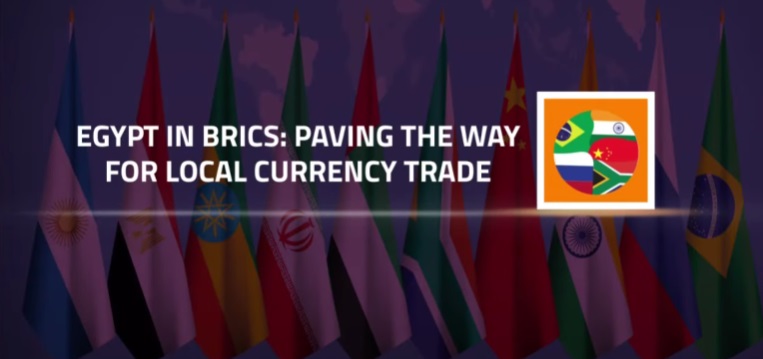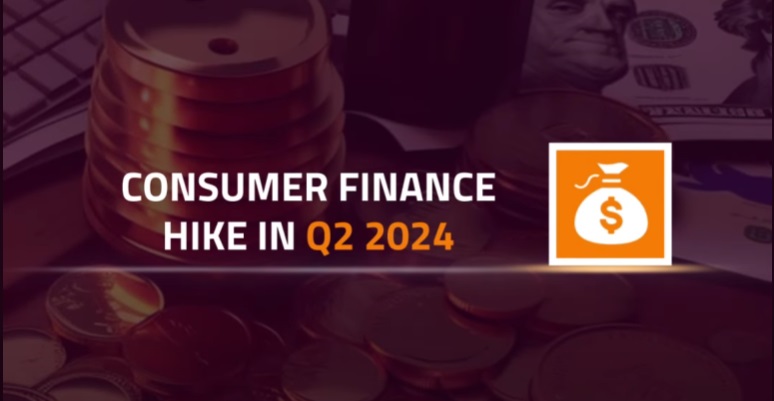Egypt’s IMF Review in Focus: Navigating Economic Reform Amid Geopolitical Risks
Updated 11/12/2024 8:00:00 AM
Egypt's economy has been undergoing significant transformation in recent years, marked by both challenges and opportunities.
As the International Monetary Fund (IMF) recently started its fourth review of Egypt's economic program, the outcomes of this assessment are poised to further shape the nation's economic trajectory.
Yet, it remains unclear how the economic reform program will proceed in the coming years.
A Changing Economic Landscape in 2024
In 2022, Egypt initiated an economic reform program, with the support of the IMF. However, the current economic landscape has changed significantly from the conditions when the program was launched, a fact Prime Minister Mostafa Madbouly acknowledged earlier in November.
Despite challenges, Egypt has been implementing these economic reforms. Sherine Ghaly, Associate Professor of Economics at the Institute of National Planning, tells Arab Finance: “Until now, Egypt has upheld necessary reforms, committed to a flexible exchange rate regime, maintained a steady monetary policy, pursued revenue-based fiscal consolidation, monitored overall public investment, and gradually reduced public sector roles in economic activity.”
However, Ghaly stresses that Egypt’s geopolitical environment calls for a more adaptable approach. “Given Egypt's geopolitical concerns, the IMF should consider being more flexible about the timing of implementing those reforms,” she suggests.
Geopolitical circumstances are impacting the economic scene in Egypt. Economist Ali Metwally explains, "Ongoing geopolitical unrest poses notable risks to Egypt's economic reforms, threatening investor confidence, tourism, and trade routes such as the Suez Canal."
Regional instability has directly affected the Suez Canal revenues, which declined by over 50-60%, losing over $6 billion in the past seven to eight months, as revealed by President Abdel Fattah El-Sisi last September.
Ghaly further states that the Gaza-Israel conflict is exacerbating the situation. “Egypt is facing negative spillovers because of the Gaza-Israel war. The conflict is notably disrupting trade in the Red Sea, dramatically lowering the Suez Canal revenues, which is a major source of foreign inflows and fiscal income.”
“The end of this war, which marks a main source of stress to Egypt, is largely unknown. Thus, it represents a serious external risk to forecasts. The impact on the Suez Canal revenues affects all economic sectors and the overall gross domestic product (GDP),” Ghaly highlights.
In addition to these direct impacts, the conflict has other secondary transmission channels that also contribute to the pressure on Egypt, such as a deteriorated economic outlook and increasing import costs. Therefore, Ghaly indicates that the IMF needs to recognize the multiple factors pressuring Egypt before pressing for further reforms.
In this regard, Metwally suggests that Egypt can stabilize its economy and mitigate these risks by ensuring several crucial methods. “Maintaining policy continuity and adhering to the reform agenda, including fiscal consolidation and structural reforms, are crucial for economic stability,” he tells Arab Finance.
He also advocates for expanding trade and investment relationships beyond the region to reduce dependency on geopolitically sensitive areas.
Fortifying infrastructure and local industries could also help Egypt alleviate the impacts of geopolitical unrest, enhancing resilience and sustaining economic growth, according to Metwally.
On the other hand, Ghaly emphasizes that investing in high-return sectors like industry, agriculture, and technology could assist Egypt in reducing these impacts. “Politically, bilateral debt swaps and multilateral debt relief initiatives could alleviate these pressures,” she adds.
To address recent challenges, President Abdel Fattah El-Sisi called for a reassessment of Egypt’s program with the IMF in terms of goals and timeline. This step focuses on alleviating the burden on citizens by controlling inflation and rising prices while attracting investments and empowering the private sector to bolster economic growth.
His call followed a recent meeting with IMF representatives in early November, where concerns about Egypt's economic situation amid global crises were discussed.
In this context, Ahmed Fawzy Hussein, a Ph.D. holder and an assistant professor of economics, tells Arab Finance, “Egypt is expected to implement targeted social programs, reinforcing social protection initiatives for low-income groups affected by economic reforms.”
“Egypt is also expected to advance structural reforms to improve the business climate, reduce bureaucratic hurdles, and encourage private-sector growth,” Hussein notes.
Additionally, maintaining fiscal and monetary discipline is a key step to decreasing the fiscal deficit and curbing inflation, ensuring macroeconomic stability, according to Hussein.
IMF's Perspective and Expectations
During a meeting with Madbouly in early November, IMF Managing Director Kristalina Georgieva commended Egypt’s progress in adopting a flexible exchange rate regime and expanding the private sector’s involvement in driving economic growth and job creation.
Georgieva projected a growth rate of 4.2% for the current fiscal year (FY) 2024/2025, a notable improvement from the 2.4% recorded in the previous FY. She also anticipated a decline in Egypt’s inflation rate to around 25-26%, down from 37% in the prior year.
Meanwhile, Madbouly declared that the government intends to reduce inflation further to 10% by early 2026.
On November 9th, the IMF started the fourth review of Egypt's program. Concerning this, Hussein outlines the focus areas of the review. “The focus areas of the IMF's review likely include reviewing and assessing Egypt's commitment to a flexible exchange rate, measures to manage fiscal deficits and public debt, and strategies to curb inflation,” he says.
“The review is also likely to include examining progress in structural reforms aimed at enhancing the business environment, promoting private sector participation, and ensuring that social safety nets are in place to protect vulnerable populations during economic adjustments,” as per Hussein.
Metwally agrees, pointing out that the IMF review is likely to concentrate on evaluating Egypt’s adherence to a flexible exchange rate regime and the effectiveness of monetary policies directed at reducing inflation.
“Efforts to strengthen revenue mobilization and create fiscal space for expanding social programs, as well as monitoring the progress of structural reforms, are also likely to be reviewed,” Metwally highlights.
“Another main area likely to be discussed is the required fiscal improvements. Widening the tax base is one of these identified areas for improvement,” Ghaly adds.
“Prior to the fourth review, the Ministry of Finance announced three main priorities: resolving past tax disputes, simplifying the tax framework, and applying business-friendly fiscal policies. A comprehensive tax facilitation package is set to be unveiled soon to boost tax revenue,” Ghaly points out.
The IMF review is expected to reflect positively on the Egyptian economy. Hussein says, "A positive review could bolster investor confidence, potentially scaling up both foreign direct investment (FDI) and economic growth.
“Conversely, identifying areas needing improvement may prompt the government to accelerate necessary reforms to maintain growth," he clarifies.
The IMF’s emphasis on monetary and fiscal discipline is anticipated to help curb inflation. However, some reform measures may temporarily elevate prices. Hence, a positive review could lead to the release of additional IMF funds, which would bolster foreign exchange reserves and improve Egypt’s access to international capital markets, according to Hussein.
As Egypt navigates a complex economic landscape shaped by global and domestic factors, the upcoming IMF review will play a crucial role in determining the country's economic trajectory.
While significant challenges persist, including geopolitical risks and inflationary pressures, the government's commitment to economic reforms, coupled with the IMF's support, offers hope for a more stable and prosperous future.
By Sarah Samir
Related News









